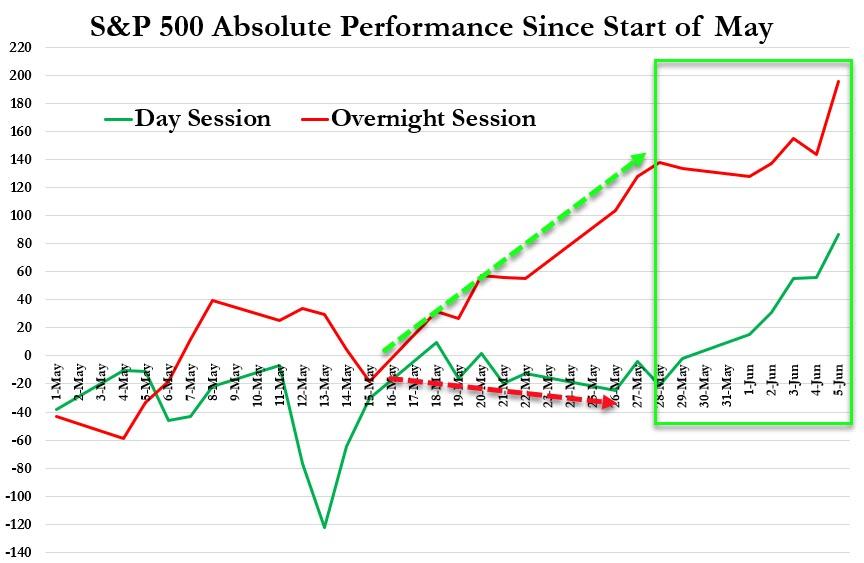Police departments are usually the biggest expense for an American municipal government. For the past week Americans have been getting a blunt demonstration of where that money has been going. Cops are beating up and tear-gassing peaceful protesters while actual looters run rampant. This is what we’re paying for?
Unsurprisingly, such police behavior has drawn attention to the movement to dramatically reduce the money cities spend on police departments.
This week, Los Angeles Mayor Eric Garcetti announced that the city would cut up to $150 million from the LAPD’s general funds budget and redirect that money elsewhere. If that actually happens, it could reverse a trend of annual growth in police spending. Los Angeles currently spends $1.8 billion on law enforcement out of its total $10.5 billion total budget—and that doesn’t include pensions and health care.
It may be tempting to see the Defund Police movement as a bit naïve. The L.A. “People’s Budget,” based on interviews with more than 1,000 Angelenos, suggests cutting law enforcement spending to less than 6 percent of the city’s general spending—instead of the current 54 percent—and redirecting that money to a host of social projects and housing programs. The dramatic disparity may partly reflect the fact that many of the groups involved with the survey hope to receive some of the redirected spending. Whatever they want to do with police budgets, the agenda here clearly isn’t about limiting the rest of the government.
But whether or not we agree about that part of the agenda, reducing the size and scope of police departments is a goal libertarians certainly support. Here are three things the #DefundPolice movement should take into consideration as it pushes for smaller police budgets:
1. If you don’t account for revenue from fines, fees, and forfeiture, this can all backfire against the poor.
A city’s general fund isn’t always the sole source of a police department’s funding. In Los Angeles, the general fund accounts for about $6 billion of the city’s $10.5 billion budget. In any number of police departments across the country, their budgets are bolstered by money from fees and fines paid when somebody is arrested for a crime. Many police departments also are able to keep some (or even all) of the money or property they seize from people they arrest.
Thanks to the civil asset forfeiture process, police are often able to keep people’s money, homes, and vehicles through complicated court proceedings simply by accusing the owners of having earned the money or purchased the property through illegal means—without having to actually get a court conviction.
There have been some recent reforms to forfeiture, in part because during our last recession, when revenue collection in cities went down, many police dramatically increased the use of asset forfeiture to maintain their budgets. They weren’t taking money from rich people or leaders of drug cartels. The targets of asset forfeiture are frequently low-income minorities and immigrants who lack the resources to fight back.
California adopted state-level changes in 2016 that make it harder for cops to keep people’s assets without a criminal conviction. But in many states, reform is still sorely needed. Just last month, an effort to change asset forfeiture rules in Arizona was killed by Democratic lawmakers—precisely because the change would deprive police departments of revenue.
In addition, some cities are overly dependent on fines and fees, turning the local cops into an especially nasty sort of tax collector. In the wake of the Michael Brown shooting in Ferguson, Missouri, black residents in several St. Louis-area communities railed against these small regimes of petty fines for extremely minor crimes and the harsh code enforcement systems that tried to extract homeowners’ money over tiny violations.
The Institute for Justice investigated and documented the harshness of these systems in Missouri and some other states, noting that some communities depend on fees and fines for as much as 30 percent of their budgets.
If this is how your community is paying for police and services, you can’t simply redirect your policing budget. Presumably, cutting back on police will reduce the number of fees and fines being extracted from citizens. That would be good! But that means the local government will have less money, and if it isn’t willing to do without this money, the police will be pressured to find more reasons to cite and fine citizens for minor crimes. And guess what? Mark Zuckerberg is not going to be paying them.
2. Police employee pension commitments are crushing your budgets.
While it’s tempting to see these militarized police forces and think we’re spending too much of our tax money on riot gear, pepper spray, and armored vehicles, the reality is that this money is just a small part of the department’s budget. LAPD Chief Michael Moore noted after the announcement of budget cuts that 96 to 97 percent of that budget is police salaries and “other payroll costs.”
Among those “other payroll costs” across the country are billions upon billions of pension debt payments for city employees. And because police represent cities’ largest expense, that means police officers represent a huge chunk of that pension debt. That cannot simply be “defunded”; it must be accounted for somehow.
L.A. spends about $1.2 billion annually—13 percent of its budget—on pension payments. And California’s constitution actually prohibits scaling back public employee benefits. Los Angeles cannot just cut wages and pensions. It will have to eliminate positions or do a hiring freeze.
Many cities have done a terrible job of managing pension debts, which are guaranteed to government employees when they retire. If the market doesn’t perform well to cover the guaranteed payments, the government (and the taxpayers) are on the hook for these costs.
These pension costs have ballooned over the years, because some cities have not put in enough money to cover the debts or prepared for losses if the economy turns poor. Detroit in Michigan and Stockton and San Bernardino in California and went bankrupt during our last recession in part because they could not keep up with pension costs.
As those pension costs go up, cities have had to cut all those other services that these people would prefer to than police. And yet there’s still a tremendous amount of resistance to shifting public employees to a defined contribution system where cities pay money up front into retirement systems, a mechanism that can be adjusted based on the state of a city’s finances and doesn’t leave taxpayers with massive costly lifetime burdens for retired city employees.
Law enforcement pensions have contributed significantly to the amount of money cities are forced to commit out of their budgets. This has taken increasingly large bites out of what other services a city is able to offer its citizens. Any discussion of defunding the police needs to address this massive debt bomb that is draining city coffers dry.
3. What laws, regulations, and taxes are you willing to give up?
When I saw #DefundPolice trending on Twitter, I confess that I snorted, “We can’t even get marijuana fully legalized across the country and people are talking about defunding the police?”
This wasn’t entirely fair of me. One thing libertarians have in common with many urban leftists is a desire to eliminate laws that criminalize what people consensually consume or otherwise do with their bodies. But while we should legalize drugs, prostitution, and other vices, that isn’t all that serious police reform requires. Eric Garner died at the hands of the New York cops in part due to suspicions he was holding and selling “loosies”—black market loose cigarettes. And that city’s black market for cigarettes exists entirely due to the city’s high taxes and government-mandated price floor.
Similarly, California still has a massive marijuana black market despite legalizing the recreational use and sale of weed. That’s because cities and the state have piled on so many taxes that it’s just cheaper not to go legit. The reasons the government is policing people have changed (“Drugs are bad!” becomes “You’re not licensed!”), but the people being targeted really haven’t. The people most likely to fined or arrested by police are those who can’t afford the cost that cities are demanding of them.
The police are being used to enforce a host of regulations that have fundamentally criminalized a lot of poorer people’s economic activities, entirely because the government isn’t getting a cut of the money. It’s all framed as a public health and safety issue. Who knows where those street vendor hot dogs have been unless the sellers obey expensive mandates and pay for the licenses that prove they’re following the rules? What horrible things might happen to your fingernails if you don’t go to a nail salon with licensed technicians?
All of these systems serve as revenue for city government and are enforced by the police. Scaling back and eliminating many of these regulations and taxes would make life and economic participation a whole lot easier and safer for poorer citizens.
But that only works if cities are willing to give up that money. Will this movement to defund the police grasp the role that policing plays in city revenue? Improving our freedoms means cutting back not just on the police baton, but on the red tape.
from Latest – Reason.com https://ift.tt/2Muyqd0
via IFTTT




















